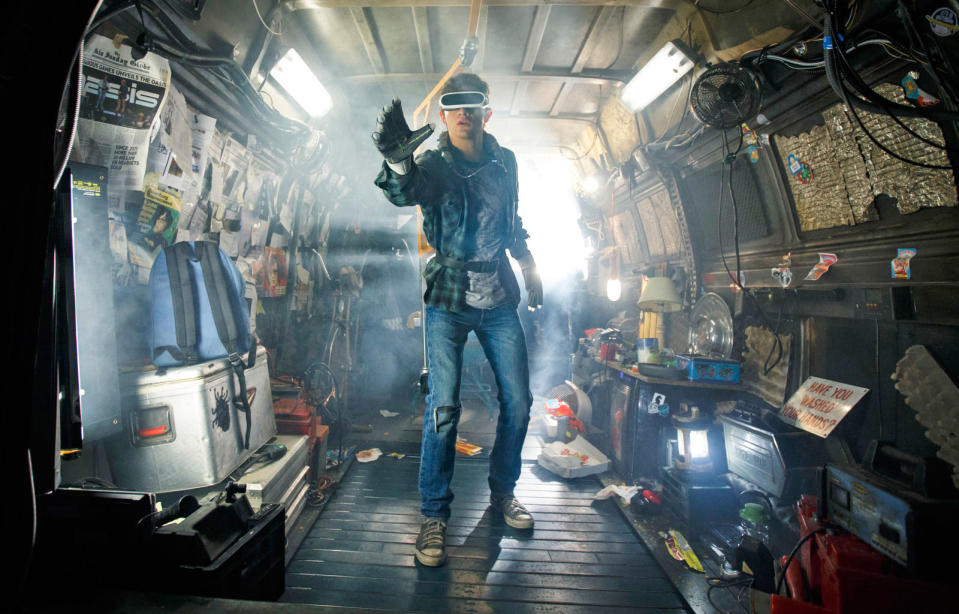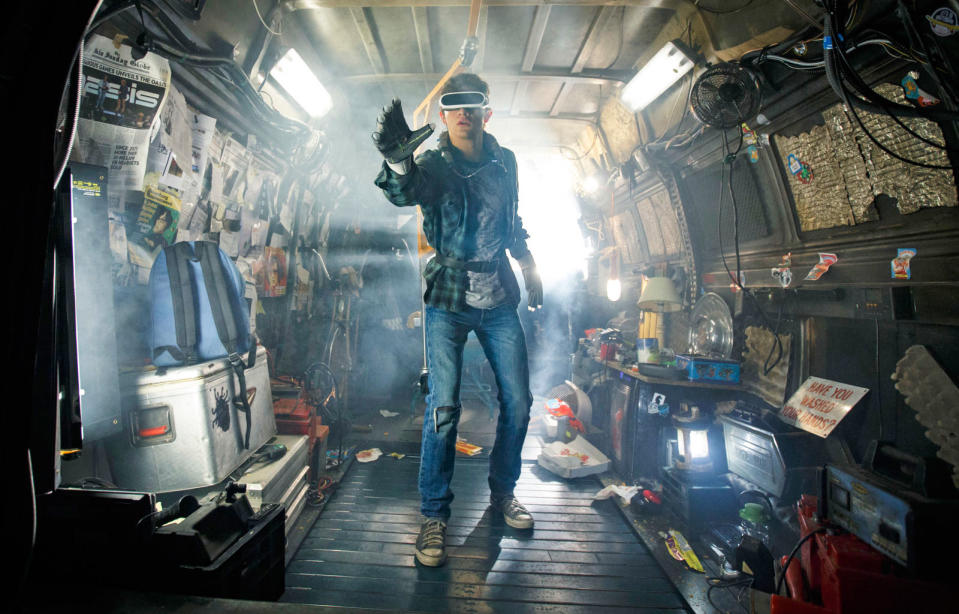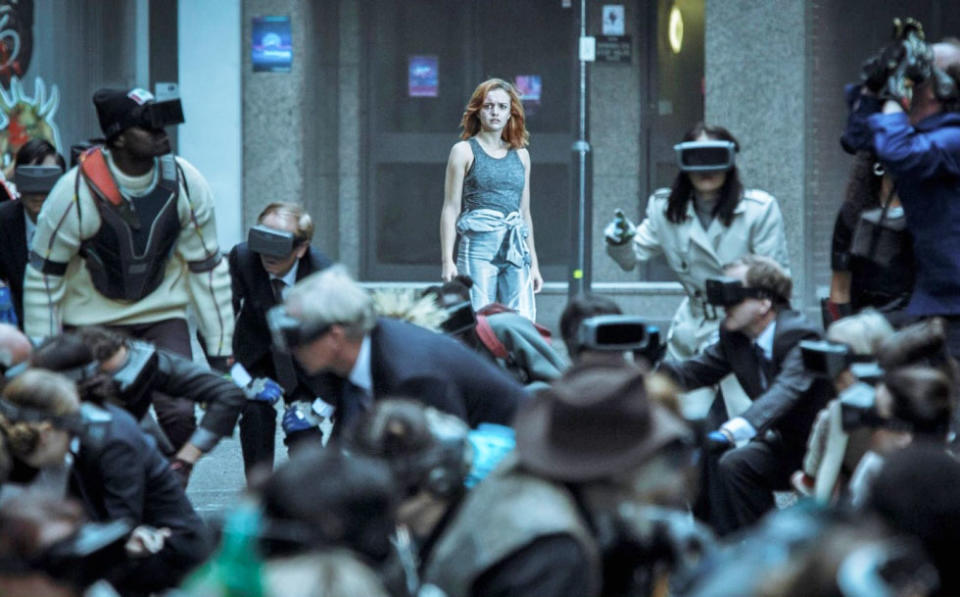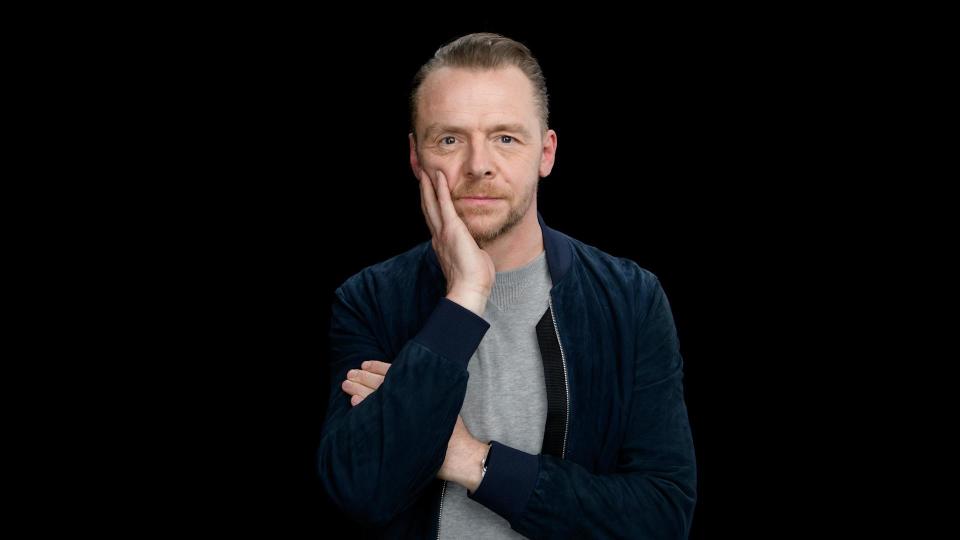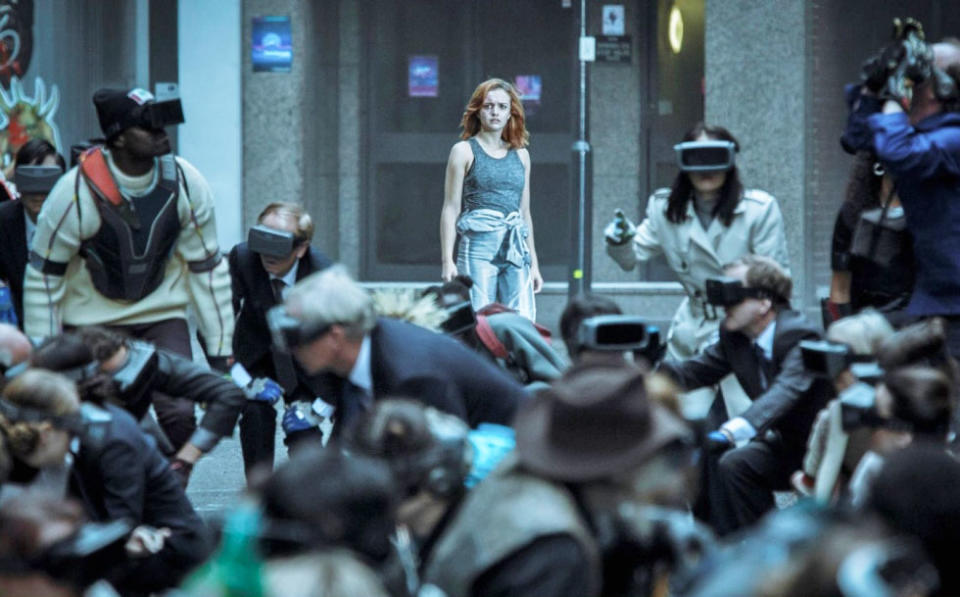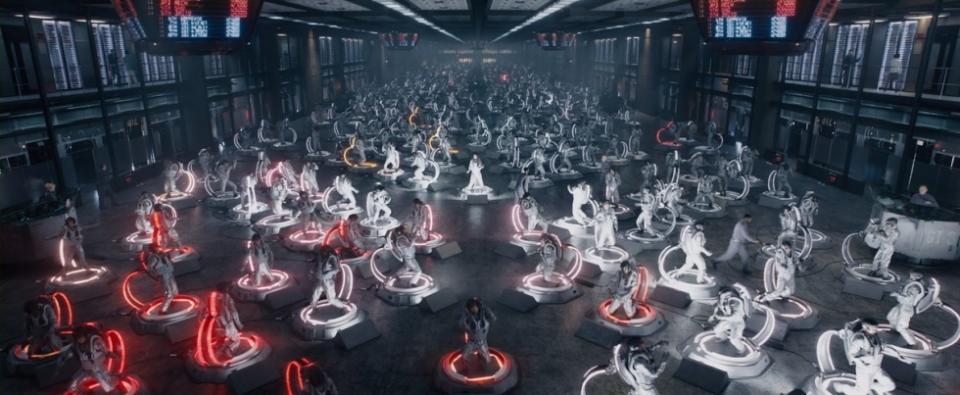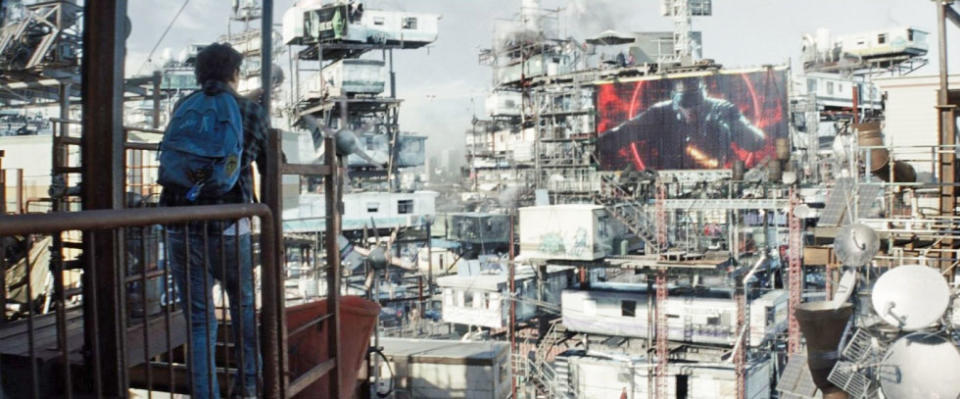In ‘Ready Player One,’ the real world doesn't matter
Spielberg's film is more concerned with having a blast in VR than actual reality.
When Steven Spielberg introduced Ready Player One at SXSW this year, he made a surprising statement: "This is not a film that we've made, this is -- I promise you -- a movie." And really, there's no better way to put it. It's a pop-culture-driven, nostalgia-inducing blockbuster that works best as a ride, but it falls apart the moment you think critically about it. It's not something that'll be taking any deep stances on VR, and it certainly doesn't have time for much social commentary (aside from some heavy-handed moralizing at the end). Spoilers ahead for Ready Player One. While Spielberg's film is an improvement on Ernest Cline's novel in almost every way, with slightly stronger characters and a scope beyond '80s pop-culture references, it's also a missed opportunity. It does little to show us the world and people outside of those VR headsets, which makes it more difficult to care about the stakes of our heroes' virtual adventure. It's surprising to say, given how much I loathed the source material, but that's one area where the book did a better job. The film starts out similarly, describing a future where the world is semi-collapsed and people live in city slums. Their only escape is the Oasis, a VR world where practically anything is possible. But while the film briefly shows people gaming in the Oasis and doing a few odd jobs (we see a brief shot of a woman pole dancing), we don't really see how society functions if everyone is wearing headsets. Cline's book at least gives us a glimpse at how the world could be shaped around VR. In the novel, our hero Wade Watts (AKA Parzival online) goes to a public school on planet Ludus inside Oasis. Partially, it's because he was bullied in a real-world school, but it's also easy to see the advantages of a VR-driven education, where teachers can make lessons completely interactive. Spielberg's adaptation of Ready Player One, based on a script by Zak Penn and Cline, skips the Ludus entirely, and along with it much of the world building. All we know is that the world is in a shambles, but it's unclear what it actually looks like outside of a brief glimpse at the stacks of trailers Wade calls home. The main thrust of the film is the same as the novel: Wade and his friends are racing to find the hidden keys left by the Oasis' creator, James Halliday, following his death. Whoever finds all of the keys gets full control of the virtual world. And, as you'd expect, there's a rival group on the same mission: Innovative Online Industries (IOI), a well-funded tech corporation that's eager to own the Oasis and monetize the hell out of it. While the book spans years, the film boils down much of its action to a few weeks. And consequently, Wade's journey doesn't seem nearly as compelling. That sped up narrative also gives us little chance to see how the world reacts to his accomplishments. He's the first person to find one of Halliday's keys, but the only glimpse of celebrity is him being briefly mobbed by a few fans in the Oasis. There's never a sense of how people in the real world respond. Never mind that it's a remarkable achievement -- something that thousands (perhaps millions) of people failed to do over the five years since Halliday's death. I wasn't really expecting much from the film to begin with. But I grew increasingly annoyed at how much Spielberg, an artist who's no stranger to grounding fantastical narratives with human emotion, ignored the actual people who live most of their lives in VR. Instead, he's more focused on showing us how much fun the Oasis can be. The first key challenge is an insane, action-packed race filled with dozens of pop culture references. And it's great to see the return of some cult heroes, like the Iron Giant, in the huge final battle. But again, that's all spectacle with very little heart. There's something inherently sad about a world where everyone is strapped into VR most of the time. But in the brief looks we get at crowds of actual humans, it's all played for laughs. We see both kids and adults strapped to headsets outside during the day, who are more concerned with what's happening with their virtual characters than their physical bodies. I get it: VR looks silly, especially once haptic suits and omnidirectional treadmills are in play. But how does a society work if everyone's just walking around wearing VR headsets? Throw me a bone, Spielberg, I'd like to see how they can even cross the street. At least the film does a decent job of telling us why it'd be a bad thing for the world if IOI got its hands on the Oasis. In one of the more memorable scenes, the company's head of operations, Nolan Sorrento, proudly proclaims they'll be able to fill around 80 percent of a player's view with ads before there's a risk for seizure. That's obviously a bit extreme, but it resonates today, now that we've seen how far companies will push their technology, even if there's a risk for societal harm. Just look at Facebook's latest controversy around Cambridge Analytica, a company that didn't actually hack anything, just absorbed as much personal data as the social network made available. And then there's Facebook's mishandling of fake news and nefarious ads, which likely had an impact on the 2016 election. Ready Player One adds slightly more depth to Art3mis, the badass female player that Wade inevitably falls for. In the film, she's also a member of a resistance group that's fighting against IOI. Aside from that setup though, the movie doesn't tell us much about Art3mis's group. Does it only exist in one city? Is it a worldwide resistance? And it's not as if they're fighting for the freedom of an open platform like the World Wide Web. In the end, the Oasis is still a product of one company, albeit a seemingly benevolent one. The most disappointing element of the film is the way it ends. (Spoilers ahead, naturally.) Upon finding the final key and gaining control of the Oasis, Wade and his clan institute a new rule: The VR world will be shut down on Tuesdays and Thursdays. While the intent might be helpful -- people should really take off those headsets once in a while -- it's a bit of a Luddite solution. What about people who depend on the Oasis for a living? And is it actually noble to cut off access to a resource that everyone relies on for education? Shutting down the Oasis for a few days would be as helpful as disconnecting the internet for a few days, or locking people out of their smartphones to cure tech addiction. Spielberg's Ready Player One is a curious adaptation. For the most part, it succeeds, especially if you're just looking for a fun ride through pop culture in VR. But it could also have been a fun blockbuster while thinking deeper about its characters and world, like with Jurassic Park and Minority Report.



